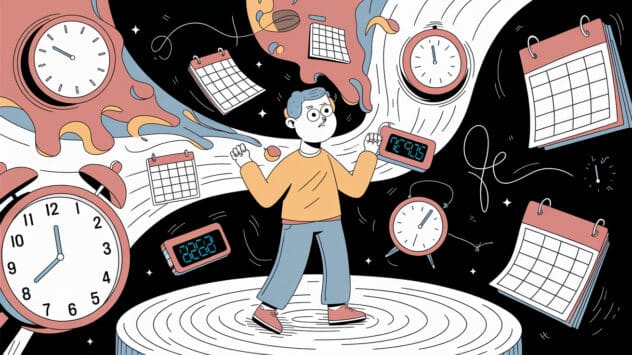
So, you’ve just received the news: your child has been diagnosed with ADHD or Autism. Cue the flood of emotions. Relief, confusion, worry, a sprinkle of overwhelm… perhaps even a “what do I do now?” moment. First things first: take a deep breath. This is not the end of the world; it’s the start of understanding your child’s unique world.
Let’s walk through this together, with a touch of humour, heaps of practicality, and plenty of heart.
What Does Being Diagnosed with ADHD or Autism Mean? (And Why It’s Not as Scary as It Sounds)
ADHD (Attention Deficit Hyperactivity Disorder) and Autism Spectrum Disorder (ASD) are neurodevelopmental conditions. That’s a fancy way of saying your child’s brain works differently, not wrong, just different. ADHD often involves challenges with attention, hyperactivity, and impulse control, while Autism affects communication, sensory experiences, and social interactions.
Unlock peak brain performance with science-backed biohacks. Join free now & get your guide for just £4.99 (45% off)!

But here’s the thing: these are not labels to fear. They’re tools to understand how your child experiences the world and, more importantly, how you can support them in thriving. Every child with ADHD or Autism is unique, so don’t get too caught up in the textbooks, focus on your child. If someone you know or love has been diagnosed with ADHD or Autism, embark on a journey to understand it, not fear it.
Build Your Dream Team (Because You Can’t Do It Alone)
Raising a neurodivergent child is not a solo mission. You’re going to need a squad. Start with these key players:
- Your GP or Paediatrician: They’ll be your medical quarterback, coordinating care and referrals.
- Occupational Therapists: Sensory overload? Daily tasks feeling like climbing Everest? These pros can help.
- Speech and Language Therapists: If communication is tricky, they’ll help your child find their voice.
- Educational Psychologists: These heroes help translate your child’s needs into learning strategies that work.
- Support Groups: Other parents who just get it. You’ll laugh, cry, and swap tips over too much coffee (or wine—no judgment here).
Don’t hesitate to ask for second opinions or additional recommendations. Your child’s well-being deserves the best.
Learn, Research, Repeat (Without Losing Your Mind)
Knowledge is power, but let’s not drown in it. Focus on reliable sources. In the UK, you’ve got fantastic organisations like the National Autistic Society and the ADHD Foundation. If you’re in the US, check out CHADD (Children and Adults with Attention-Deficit/Hyperactivity Disorder). These groups offer practical advice, resources, and even advocacy support.
But don’t forget… you’re not cramming for an exam. Learning about your child’s condition is a marathon, not a sprint. Pace yourself.
Talk to the School (Even If It Feels Awkward at First)
Your child’s teachers are vital teammates. Share the diagnosis, discuss specific challenges, and work together to create a supportive learning environment. In the UK, this might mean setting up an Individual Education Plan (IEP) or an Education, Health, and Care Plan (EHCP). If you’re elsewhere, ask about similar support systems.
Pro Tip: Stay proactive and positive. Teachers are busy humans, but most genuinely want to help—especially when they see you’re part of the team.
Celebrate Strengths (Because Your Kid Is Amazing)
It’s easy to focus on challenges, but don’t forget the superpowers. ADHD often comes with boundless creativity and a knack for thinking outside the box. Autism brings intense focus and incredible attention to detail. These strengths are gifts, so celebrate them. Whether it’s art, coding, sports, or an encyclopedic knowledge of dinosaurs, nurture what lights them up.
Daily Life Hacks (Because Routines Are Your Best Friend)
- Structure Is Everything: ADHD and Autism thrive on predictability. Create clear daily routines with visual schedules if needed.
- Break Tasks Into Chunks: “Clean your room” is overwhelming. “Put your books on the shelf” is manageable.
- Positive Reinforcement: Celebrate wins, no matter how small. Reinforce good behaviours with praise or rewards.
- Sensory Tools: Noise-cancelling headphones, weighted blankets, or fidget toys can be game-changers.
Take Care of You (Yes, You)
Parenting a neurodivergent child is rewarding… and exhausting. Make self-care non-negotiable. Join a parent support group, book that yoga class, or simply carve out 10 minutes of quiet with a cup of tea (or gin… again, no judgment). Your child has been diagnosed with with ADHD or Autism and it is the beginning of a new journey for you.
Herbs and Holistic Support (Wait, Hear Us Out)
At Herbal Biohacker, we love exploring natural ways to complement traditional treatments. While herbs aren’t a replacement for medical advice, some may help:
- Ashwagandha: For stress regulation.
- Chamomile: To calm restless minds.
- Lavender: For sleep and relaxation.
Always consult a professional before introducing herbs into your child’s routine.
Don’t Forget: You’ve Got This
Your child’s diagnosis is not a limitation—it’s a guidebook. Yes, the road may have bumps (and maybe a few potholes), but with love, support, and the right resources, your child can thrive.
Want More Support?
Join the Herbal Biohacker Community, where parents like you share stories, tips, and resources. You’ll connect with specialists and like-minded families who truly understand the journey.






